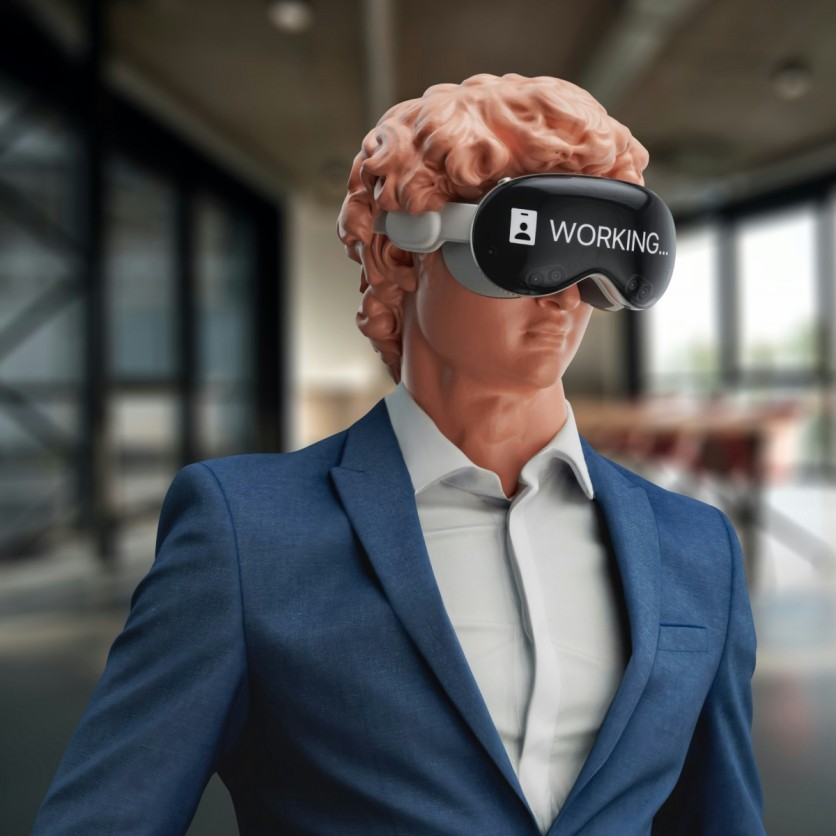Apple's Vision Pro, a virtual reality (VR) headset incorporating external cameras for passthrough functionality, aims to provide users with a seamless blend of virtual and real-world experiences. However, this ambitious attempt to bridge the gap between augmented reality (AR) and virtual reality has encountered several challenges, as reviewers have scrutinized and identified nine key problems.
9 Problems Present in Apple Vision Pro

As per a review by The Verge's EIC Nilay Patel, the Cupertino giant's Vision Pro is currently the best headset for anyone. However, it is plagued by some limitations.
Motion Blur
One highlighted challenge is motion blur, an inherent issue when using external cameras. Users may observe motion blur, especially when moving their heads, leading to a less-than-optimal experience.
Distortion and Flickering Displays
The passthrough feature introduces distortion, including warped straight lines, and displays may flick like a microwave clock. These issues contribute to a less accurate representation of the real world.
Blurriness in Low Light
Low-light conditions pose a challenge, causing blurriness in the video passthrough due to high-ISO noise reduction. As a result, the sharpness of the video diminishes, impacting the overall visual experience.
Wavering Brightness Levels
Users may encounter wavering brightness levels, particularly in scenarios with varying light conditions. The system attempts to balance brightness, leading to fluctuations that affect the perceived display quality.
Limited Color Reproduction
Apple Vision Pro faces limitations in color reproduction, supporting only 49 percent of the colors perceptible to the human eye. This restricted color gamut affects the device's ability to deliver accurate and vibrant visuals.
Limited Field of View
Despite efforts to create an immersive experience, the field of view on the Vision Pro is limited. Users may notice fairly large black borders around their view, reminiscent of looking through binoculars.
Vignetting at the Edges
Vignetting, characterized by darkening at the edges of the viewable area, is another challenge. This phenomenon contributes to a less uniform and potentially distracting visual field.
Color Fringing
Color fringing, an optical distortion resulting in color separation, may occur in the Vision Pro's visuals. This can impact the clarity and cohesiveness of the displayed images.
Highlights Reflecting on Lenses
The presence of highlights reflecting in the lenses poses a challenge to the overall visual experience. Glare and reflections may distract users and diminish the clarity of the displayed content.
"On top of that, there's a little bit of distortion and vignetting around the edges of the lenses, and you'll see some green and pink color fringing at the edges as well, especially in bright environments. All of this makes the usable field of view feel even smaller. If you're looking at something bright or otherwise high contrast - a white text window floating above a dark desert landscape, for example - you'll see highlights reflecting in the lenses," Patel said.
Addressing Limitations for Future Innovation
While the Vision Pro strives to push the boundaries of VR technology, these identified challenges highlight the inherent limitations of current camera and display technologies.
As 9to5Mac notes, Apple's Vision Pro could be a top contender in VR headset competition. However, it can't magically alter physics to bypass its limitations.
If you still want to purchase Vision Pro, visit Apple's official website for more details. You can also go to third-party buy-and-sell platforms like eBay, but expect higher prices.
If you plan to buy this VR headset outside the US, read this first to know its restrictions and settings.

ⓒ 2025 TECHTIMES.com All rights reserved. Do not reproduce without permission.




